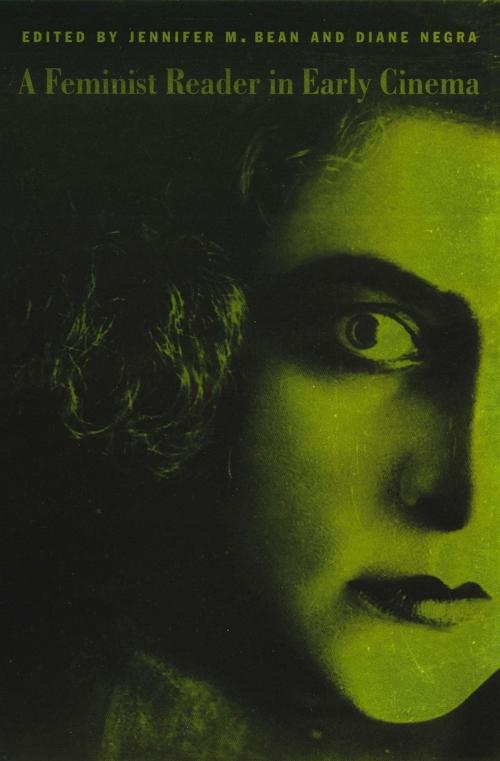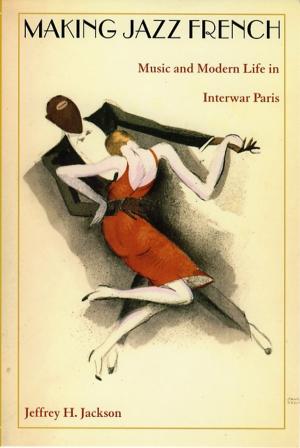| Author: | Amelie Hastie, Jane M. Gaines | ISBN: | 9780822383840 |
| Publisher: | Duke University Press | Publication: | November 21, 2002 |
| Imprint: | Duke University Press Books | Language: | English |
| Author: | Amelie Hastie, Jane M. Gaines |
| ISBN: | 9780822383840 |
| Publisher: | Duke University Press |
| Publication: | November 21, 2002 |
| Imprint: | Duke University Press Books |
| Language: | English |
A Feminist Reader in Early Cinema marks a new era of feminist film scholarship. The twenty essays collected here demonstrate how feminist historiographies at once alter and enrich ongoing debates over visuality and identification, authorship, stardom, and nationalist ideologies in cinema and media studies. Drawing extensively on archival research, the collection yields startling accounts of women's multiple roles as early producers, directors, writers, stars, and viewers. It also engages urgent questions about cinema's capacity for presenting a stable visual field, often at the expense of racially, sexually, or class-marked bodies.
While fostering new ways of thinking about film history, A Feminist Reader in Early Cinema illuminates the many questions that the concept of "early cinema" itself raises about the relation of gender to modernism, representation, and technologies of the body. The contributors bring a number of disciplinary frameworks to bear, including not only film studies but also postcolonial studies, dance scholarship, literary analysis, philosophies of the body, and theories regarding modernism and postmodernism.
Reflecting the stimulating diversity of early cinematic styles, technologies, and narrative forms, essays address a range of topics—from the dangerous sexuality of the urban flâneuse to the childlike femininity exemplified by Mary Pickford, from the Shanghai film industry to Italian diva films—looking along the way at birth-control sensation films, French crime serials, "war actualities," and the stylistic influence of art deco. Recurring throughout the volume is the protean figure of the New Woman, alternately garbed as childish tomboy, athletic star, enigmatic vamp, languid diva, working girl, kinetic flapper, and primitive exotic.
Contributors. Constance Balides, Jennifer M. Bean, Kristine Butler, Mary Ann Doane, Lucy Fischer, Jane Gaines, Amelie Hastie, Sumiko Higashi, Lori Landay, Anne Morey, Diane Negra, Catherine Russell, Siobhan B. Somerville, Shelley Stamp, Gaylyn Studlar, Angela Dalle Vacche, Radha Vatsal, Kristen Whissel, Patricia White, Zhang Zhen
A Feminist Reader in Early Cinema marks a new era of feminist film scholarship. The twenty essays collected here demonstrate how feminist historiographies at once alter and enrich ongoing debates over visuality and identification, authorship, stardom, and nationalist ideologies in cinema and media studies. Drawing extensively on archival research, the collection yields startling accounts of women's multiple roles as early producers, directors, writers, stars, and viewers. It also engages urgent questions about cinema's capacity for presenting a stable visual field, often at the expense of racially, sexually, or class-marked bodies.
While fostering new ways of thinking about film history, A Feminist Reader in Early Cinema illuminates the many questions that the concept of "early cinema" itself raises about the relation of gender to modernism, representation, and technologies of the body. The contributors bring a number of disciplinary frameworks to bear, including not only film studies but also postcolonial studies, dance scholarship, literary analysis, philosophies of the body, and theories regarding modernism and postmodernism.
Reflecting the stimulating diversity of early cinematic styles, technologies, and narrative forms, essays address a range of topics—from the dangerous sexuality of the urban flâneuse to the childlike femininity exemplified by Mary Pickford, from the Shanghai film industry to Italian diva films—looking along the way at birth-control sensation films, French crime serials, "war actualities," and the stylistic influence of art deco. Recurring throughout the volume is the protean figure of the New Woman, alternately garbed as childish tomboy, athletic star, enigmatic vamp, languid diva, working girl, kinetic flapper, and primitive exotic.
Contributors. Constance Balides, Jennifer M. Bean, Kristine Butler, Mary Ann Doane, Lucy Fischer, Jane Gaines, Amelie Hastie, Sumiko Higashi, Lori Landay, Anne Morey, Diane Negra, Catherine Russell, Siobhan B. Somerville, Shelley Stamp, Gaylyn Studlar, Angela Dalle Vacche, Radha Vatsal, Kristen Whissel, Patricia White, Zhang Zhen















